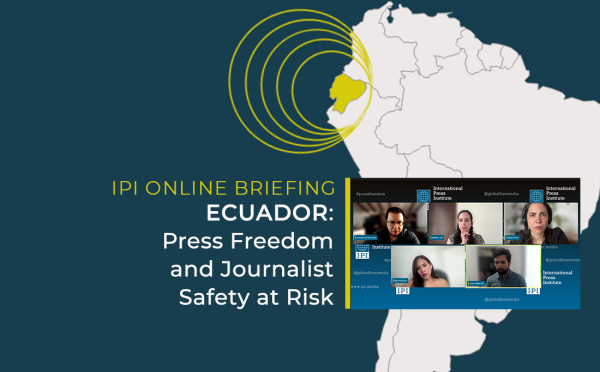The International Press Institute (IPI) today expressed serious concern over a plan announced by the communications minister of Trinidad and Tobago to require the country’s radio and televison broadcasters to carry up to one hour of government programming per day.
Emphasising that “the people must know what the Government is doing with its resources so that they can make informed decisions, ” Minister Jamal Mohammed announced in a statement last weekend that all media in the country would be asked to transmit official messages lasting up to five minutes once an hour every hour from 6 am to 6 pm.
The request was made on the basis of a concession agreement, compulsory for all broadcasters operating in Trinidad and Tobago, that grants the government up to 14 hours of airtime a week free of charge, and which allows the government to “reasonably declare any matter or event to be of public interest and require the concessionaire to broadcast [it].” Although the agreement was signed in 2005, the government has never taken advantage of these provisions.
IPI believes that the concession agreement should grant the government the power to order transmissions only in cases of national or local emergencies, rather than in the name of the broadly defined term “public interest.” All other requests made by the government should be optional.
Fundamentally, it should be underscored that the role of private media is not to act as spokesperson for the government. If a government wishes to make its voice heard, it has the option to purchase airtime.
The Trinidadian government currently owns two television stations and three radio stations, which compete commercially with private broadcasters.
The communications ministry is also heavily pressing broadcasters to include more “local content”. Mohammed in a telephone interview with the Express last week that if “moral persuasion” was unsuccessful, the government would consider legislation to compel radio and TV stations to air more locally produced programs.
While IPI supports the communication minister’s stated intention “for all the people of Trinidad and Tobago to have a voice,” this should not be accomplished by threatening or legally coercing the private sector.
IPI Deputy Director Anthony Mills said: “The demands related to government transmission contained in the concession agreement, which all broadcasters in Trinidad and Tobago are required to sign, are a troubling development for a democracy. The Trinidadian government needs to ensure that it does not infringe upon the commerical freedom of broadcast media.”
Mills continued: “We are also concerned that the media were not properly consulted either in the drafting of the concession agreement, or in the communication minister’s recent proposal. We urge the Trinidadian government to confer closely with the media when pursuing regulations that directly affect their editorial and economic independence.”
IPI held its 2012 World Congress in Port of Spain in June, at which both President George Maxwell Richards and Prime Minister Kamla Persad-Bissessar spoke out strongly in favour of press freedom and repealing criminal defamation.


